But enough about me
On my big birthday, the Nora Ephron holy trinity, and how it all relates to what I'm doing right now, as always
I’m about to get on a flight back to Australia after spending three and a bit weeks in the UK on my own writing a rom-com novel, so get ready for an absolutely deranged soup of thoughts that are ultimately all about me, and partially about Nora Ephron films. Talking about myself? What a wild concept for this column. I’m also sitting in a hotel lobby killing time before I leave in many hours, so forgive me any mistakes, I’ve got lobby brain. (Update: I’m now sitting in Heathrow airport, I have airport brain which is infinitely worse.)
The goal of this trip is multi-layered - it can never just be a holiday, it could never just be for enjoyment, that would be insane. It also has to be work. It has to be in aid of something. It also has to include some kind of grand symbolic gesture. Speaking of which, I was at the British Museum today, and a young ambiguously European couple were looking at the exhibit I was admiring, a totem pole from Canada. The woman clearly couldn’t read English as well as the man, and she asked him “what is it for?” and he made a show of reading the plaque, before confidently telling her “It is… uh… symbolic”.
There’s some fun and insane “symbolic” components of this trip too - just ASK me where I got the money from, it’s the end result of a sad story, which I’ve reclaimed so at least I can say I got to go to Europe as a result of mild personal tragedy. And the other component is that by the time you read this, I will have turned 40, somewhere in the sky, in that weird no-man’s land of time that is international time-zones. Being alone and much closer to the moon than normal when I turn 40 really amuses me for some reason. Turns out I’m not growing out of being a weird dramatic queen any time soon. Happy birthday to me.
The work component is all about my second romantic comedy novel, which I have decided to set partially in Edinburgh, which is where I spent most of my trip. It was my first time visiting, and I was right: it’s a city designed to have romance set in it, so I’m feeling good about that. I didn’t get a lot written, because I also made sure to spend every day looking at very old things and extremely beautiful paintings, but what I did write feels solid and strong as a result. The book has clarified. I also did a lot of research - I read, I saw musicals, and I watched a lot of rom-com films. I decided to re-watch the classics of the genre, including the Nora Ephron rom-com trinity.
There is a famous Nora Ephron quote that I’ve spent a lot of my life thinking about, that at times I worry that I’ve taken too close to heart, and that I’ve almost certainly misunderstood for many years: “Above all, whatever you do, be the heroine of your own life, not the victim.” As should be clear from the above, I am unfortunately the kind of person who does romanticise their life like a rom-com heroine, so on a surface level, that’s how the quote applies to me.
I believe the context of this quote comes from her (at the time) controversial decision to write Heartburn, a bestselling book, and later a film, about the destruction of her marriage due to her husband famously cheating on her while she was pregnant with her second child. The decision to mine so directly from her life was met with disdain, disgust and gossip - it was seen not only as messy and tacky, but at the time was directly gendered in its criticism, unbecoming of a woman and particularly a mother. She was labelled a “self publiciser” in reviews. She was even forced to put some of the proceeds of the film into a trust for her children as part of the divorce settlement.
Nora Ephron’s quote, in this context, is clearly about reclaiming power, and owning your own story. It’s rebellious against social norms. It’s powerful. I think the “victim” part speaks to a lot of people - especially women of that time, who had gone through divorce, had to fight against significant social scrutiny, despite the gains of women’s liberation in the 70s.
So it’s also very funny that in my youth, I was a guy in my twenties reading that quote and saying to myself “this relates to me”, like I was a recently divorced woman in the eighties, dealing with the New York gossip scene after my political journalist husband had cheated on me. I think, honestly, that at times I read the first half of the quote and decided to be the “heroine of my own life”, in a queening out diva kind of way. As someone older, a bit more wiser, a bit more battered by life and romance, I can laugh at the shallowness of this interpretation now: unfortunately I’m ready to admit that I was the first shallow person in their twenties. Luckily, I am perfect, deep, and sublimely humble now. I’m cured.
It’s not a totally insane misreading though, because probably Nora Ephron’s most famous quote is “Everything is copy”, which essentially means that a writer can draw inspiration from almost anything in their life, no matter how personal or mundane, and use it as material. Writers have been doing this literally forever in some form or another, our experiences are the stock for any story, no matter how wild (King Lear is inspired from having children and how they suck, Lord of the Rings is about having fabulous jewellery and finding out it sucks, and the film Alien was inspired by owning a sassy cat, and finding out it sucks and wants to eat you!). But you can also draw a direct line from Nora Ephron, to Carrie Bradshaw, to Taylor Swift - all people who become, in some way, defined by overtly mixing their lives with their writing. I’m an enthusiastic devotee of this school of writing - this column is more than an excuse to talk about myself while I’m watching TV, it’s a way to use my own experiences to analyse culture, or do the inverse and use culture to help understand my own life. Writing is my primary way of engaging with the world, and therefore it feels insane to me that my experiences, my life, wouldn’t filter in to my work in some way.
Maybe the only difference between writers like Nora Ephron and myself (two of the greats, and a comparison I’m sure many people make), is that we’re not hiding it. We’ve put that chemical in the pool that shows if you’re pissing, while everyone else is just standing awkwardly in warm spots.
But the novel I’m currently writing, working title ‘Ticking all the Boxes’, is a work of pure fiction - and I think it’s been hard to start as a result. I have a great concept, but it hasn’t become clear to me yet why I’M writing it. The novel I finished earlier in the year (Spite Pie, but we have a new title which I’ll announce soon, coming out next year), is similarly a work of fiction - but there’s clear elements of my life in there. The protagonist of Spite Pie is an early 30s queer who works in a youth media company called “PopBuzz”, navigating the weird world of dating, which is clearly drawn from my time working at Junkee when I was in my early thirties, navigating the weird world of dating - some of the anecdotes from my time there have been ripped off and included. If any of my friends see themselves in those characters, please know that you are insane and narcissistic, and you actually don’t! I am not above gaslighting you. But, genuinely, it’s a hyperbole, a facsimile, as related to the actual facts of my life as a gryphon is to a house cat - in fact in this case, a lot of my real stories from Junkee, or that I’ve heard from friends at BuzzFeed and VICE and the like, are actually too weird for my book. Those anecdotes, that setting, is not WHY I wrote the book - but maybe it helped explain why I am the person to tell this story? Maybe it’s part of the humour? Maybe it’s easier for me?
‘Ticking All The Boxes’ has been a slow start - the book is about a guy who decides that he has to apologise to all the queer kids from his high school before he can start dating, after he comes out of the closet in his thirties. Not in any way autobiographical to my experience - and that’s stumped me a little. Is that because I’m a narcissist who can only write about myself? Or have I just failed to work out what part of my life I’ll use to fertilise this weird story? I hope the latter.
Re-watching the Nora Ephron holy trinity: When Harry Met Sally, Sleepless in Seattle, and You’ve Got Mail helped me work through this conundrum though. I have so many thoughts on all of these films, by the way (When Harry Met Sally is transcendentally good, You’ve Got Mail is low-key insane, Meg Ryan is a wonder, and structurally Sleepless in Seattle is bonkers), but knowing so much about Nora Ephron’s life, I started looking for clues in these films. Sure, there are a lot of journalists in the films(she was a journalist), there was a lot of New York (she lived in New York), but it wasn’t directly comparable like Heartburn. I did laugh at a jab at political journalists in Sleepless in Seattle, that gave a quick window into the more acerbic wit of Nora Ephron through the avatar of the bright and bubbly Meg Ryan. I realised I was essentially indulging in deranged Swiftie behaviour, and searching for easter eggs about Jake Gyllenhaals stupid scarf, and I hated it! Stop!
But these films are not autobiographical to the extend that Heartburn is, which puts a thin veneer over the reality of her life. There’s something more subtler, and perhaps more important from Nora Ephron embedded in each of these films - and I’m not going to categorically say what it is, because as that old literary theorist guy famously says, the artist is dead after all - but I think it’s her intentions. I think that what she wants to say about love and life and dating and new york are the real easter eggs. I don’t think we really need to look for her fingerprints on the story, but I’m going to anyway.
The holy trinity are three of the best rom-coms ever written, three of the most romantic films ever made - so what I can only assume powers these films are Ephron’s feelings about love and romance. Who knows what those precise feelings and attitudes are exactly. Is it her actual beliefs? In Sleepless in Seattle, we’re given a thesis from Annie about the “magic” of knowing when someone is the right person, a soul-mate style belief that transforms into a trope. Is that a blueprint from Nora’s mind? Is it wish fulfilment? Or is it just writing fiction? I don’t know. I can make guesses having read her memoirs, but I don’t know. I think the seduction of When Harry Met Sally is the idea that you might have already met the perfect person for you, and you just have to wait for the stars to align, and maybe that’s something she wanted but didn’t have? Once again, I don’t know. Having gone through such public infidelity, I’d take a guess that some of those films could be about hope. Hope to find someone to love, hope for something better? That’s what I take from it anyway, as a reader. That sense of hope. There are very few people in the world who aren’t going to relate to that in some way, which what makes it such good art. I need to specify that it doesn’t actually matter, and I don’t truly want to know what SHE thought, as a reader. It doesn’t matter. But as a writer, I’m interested. I’m interested in the jet fuel these stories fly on.
When I remembered that we can put these ingredients into our books, I asked myself what I wanted to write about, what I wanted to explore, what’s important to me. I cannot stress enough that these books are FUNNY and they are SILLY and they are about FALLING IN LOVE and SMOOCHING - but that doesn’t mean I don’t take the writing of them very seriously. I didn’t just want to scribe a story, to plot out the beats and tropes and characters. I think those are all the skin and organs and hair and proboscis of a narrative. What I needed to find is the mind, or the spirit, or the soul, I don’t know. Something more ephemeral, like “the intention”. What can I pull from my life right now that isn’t details, isn’t facts or settings or biography? What turns it from an idea into a story?
I’m not gonna go into the answers I worked out about this, because hilariously, they are derived from experiences that are too personal to share in a public forum, but it was a breakthrough for my writing. The whole trip was a success! It gave me the time and space to work that out. But it also made me realise that critics of Nora Ephron’s “everything is copy” quote have probably been viewing it too superficially all along - yes our art is inspired by our lives, but that’s actually so insanely mysterious and deep, because what do we have if not our experiences? What’s more complicated than our lives?
Or maybe I’m just looking for another experience to write about myself, who knows!
—
Thank you for reading! This newsletter is funded entirely by the generosity of our paid subscribers, allowing us to commission amazing queer writers and boost marginalised voices. If you like this article and believe in independent journalism, please consider subscribing.




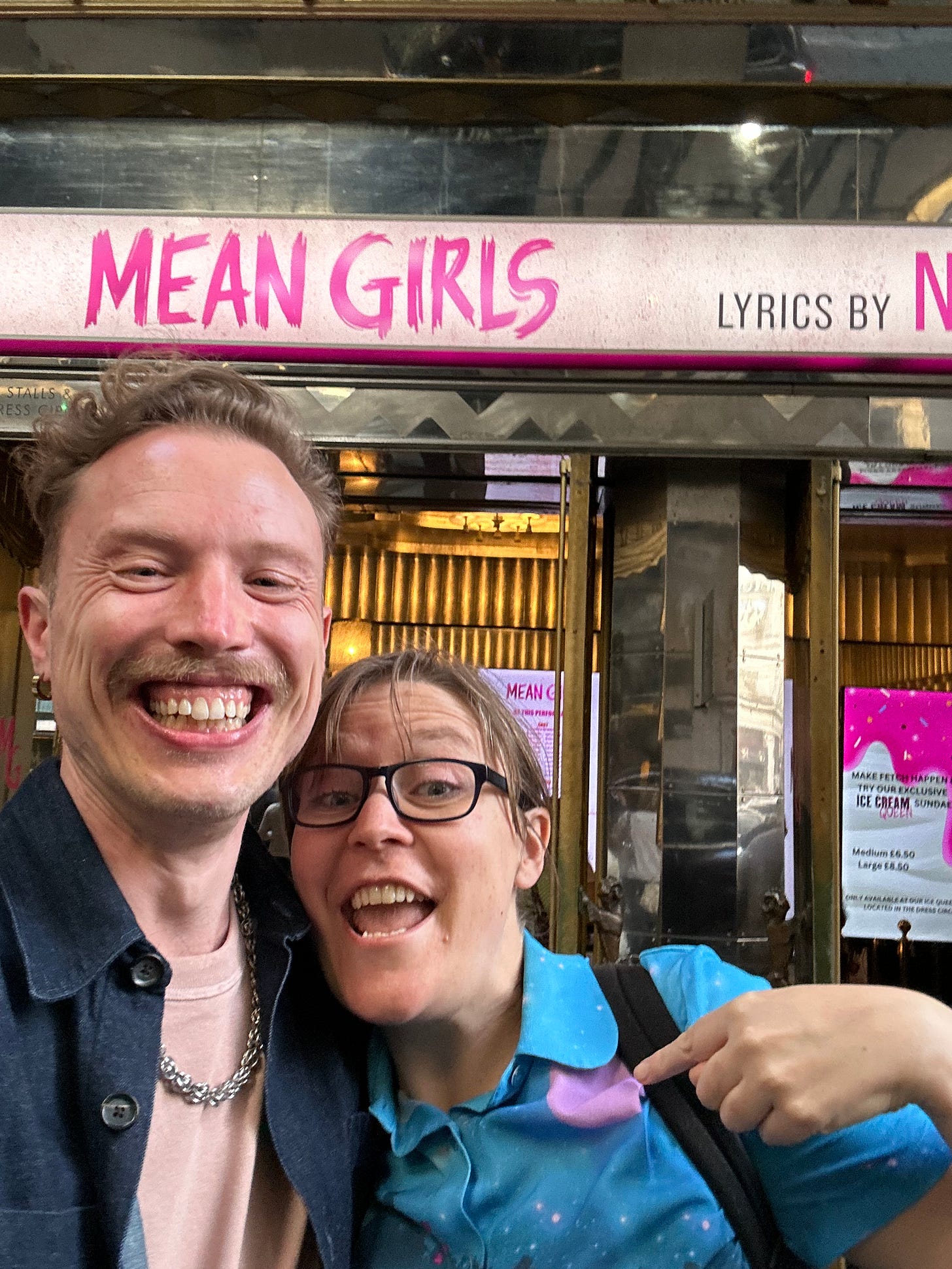
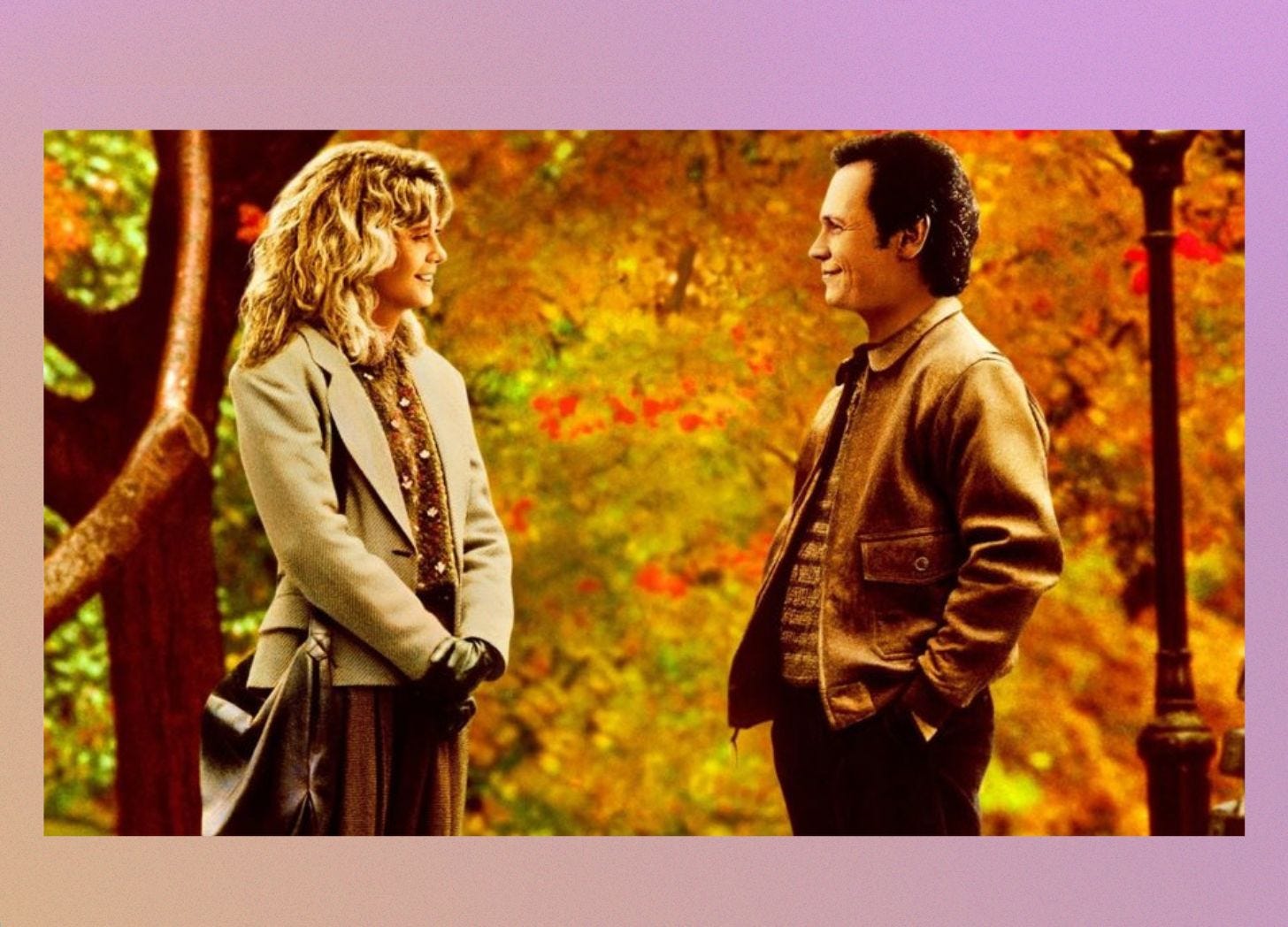
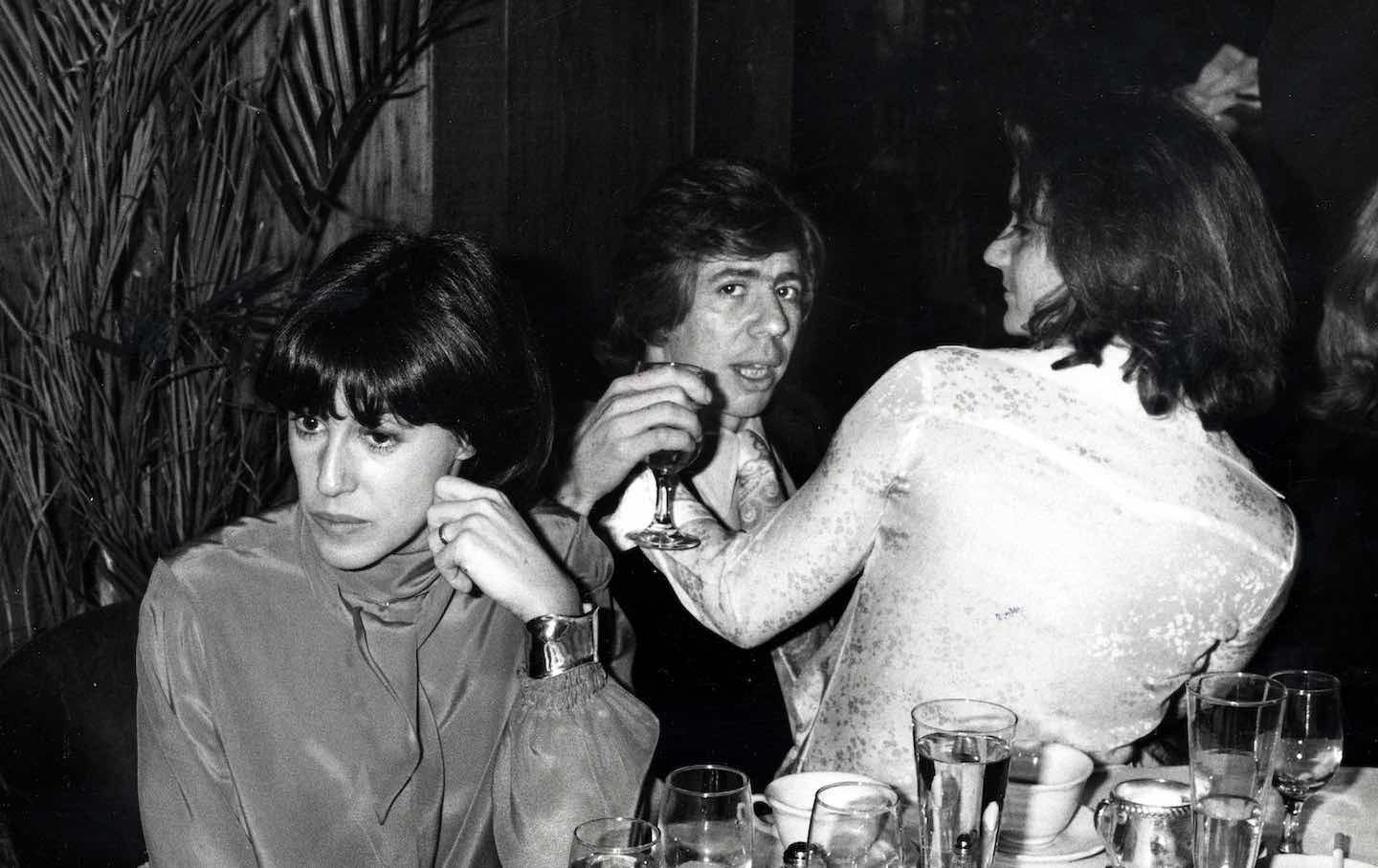
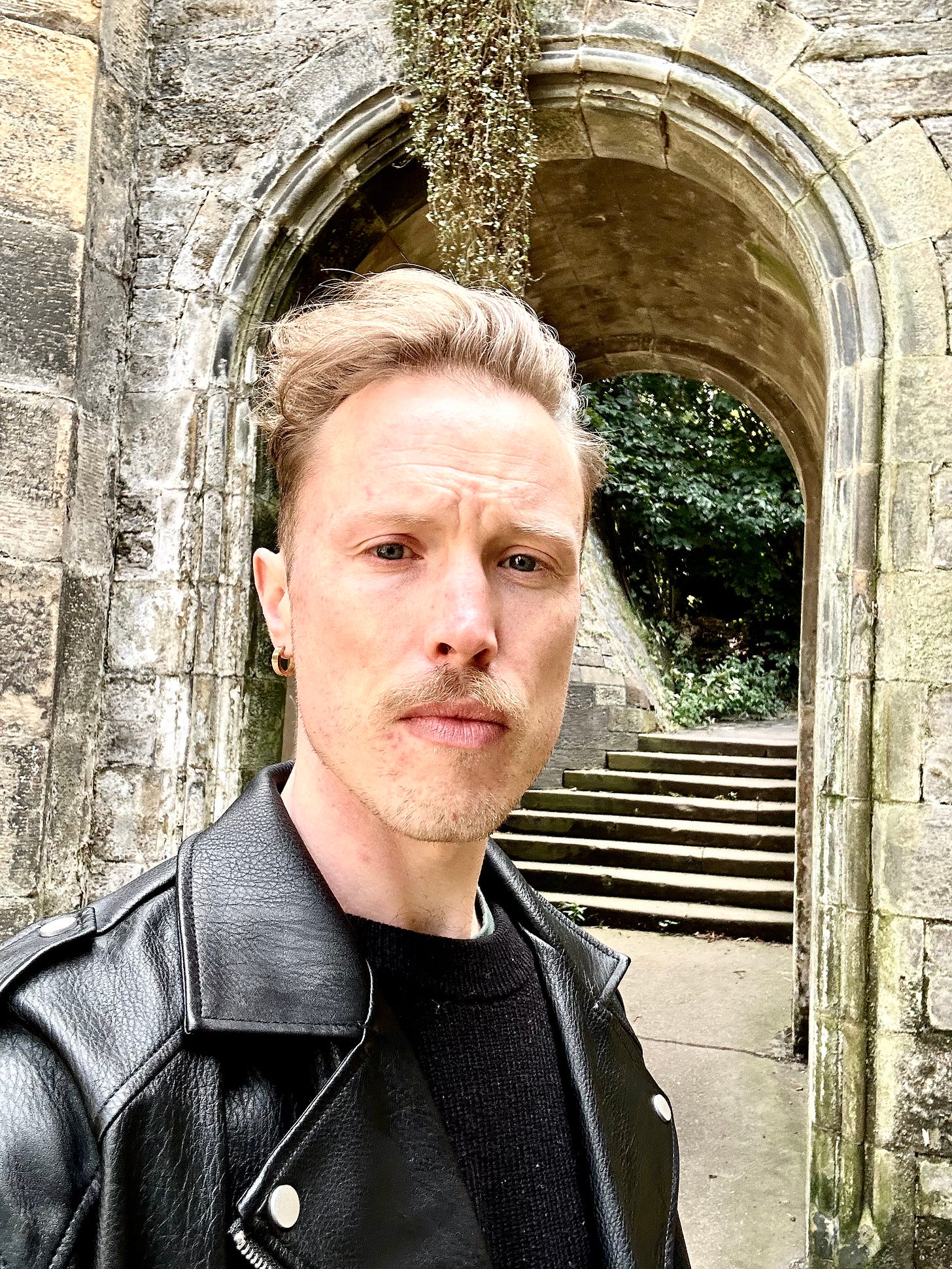
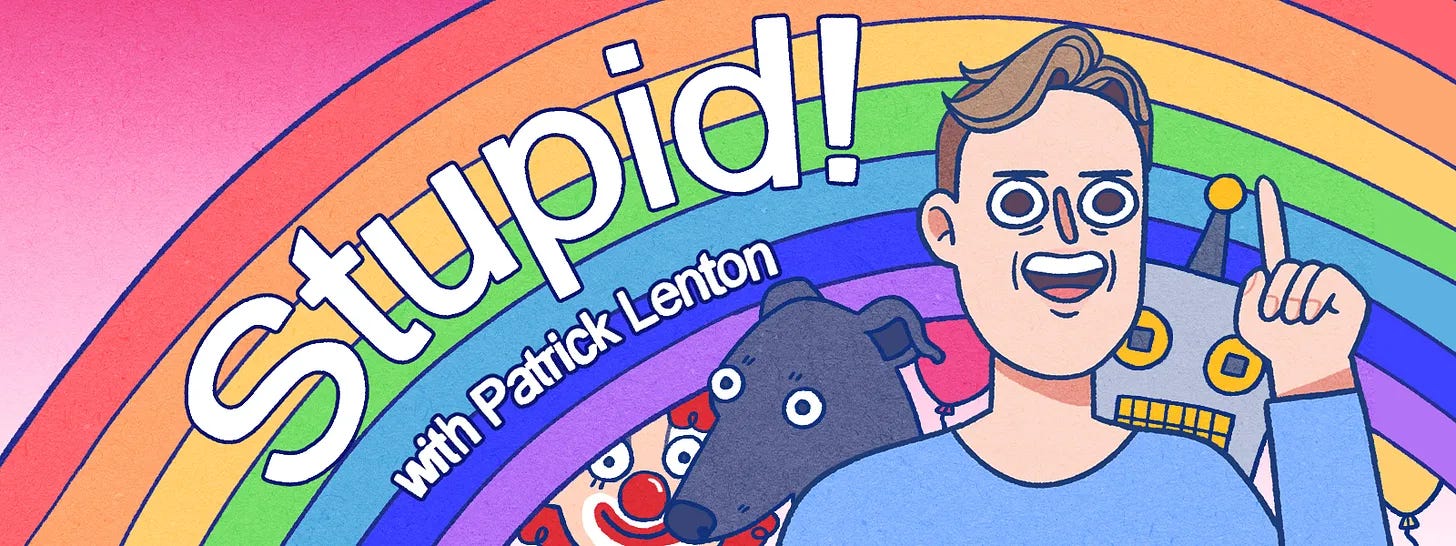
Celebrating you! Happy birthday!
Also YES to this! "...what do we have if not our experiences? What’s more complicated than our lives?"
Off to write about myself via my novel draft characters and NOT ONCE QUESTION IT! Thank you very much!